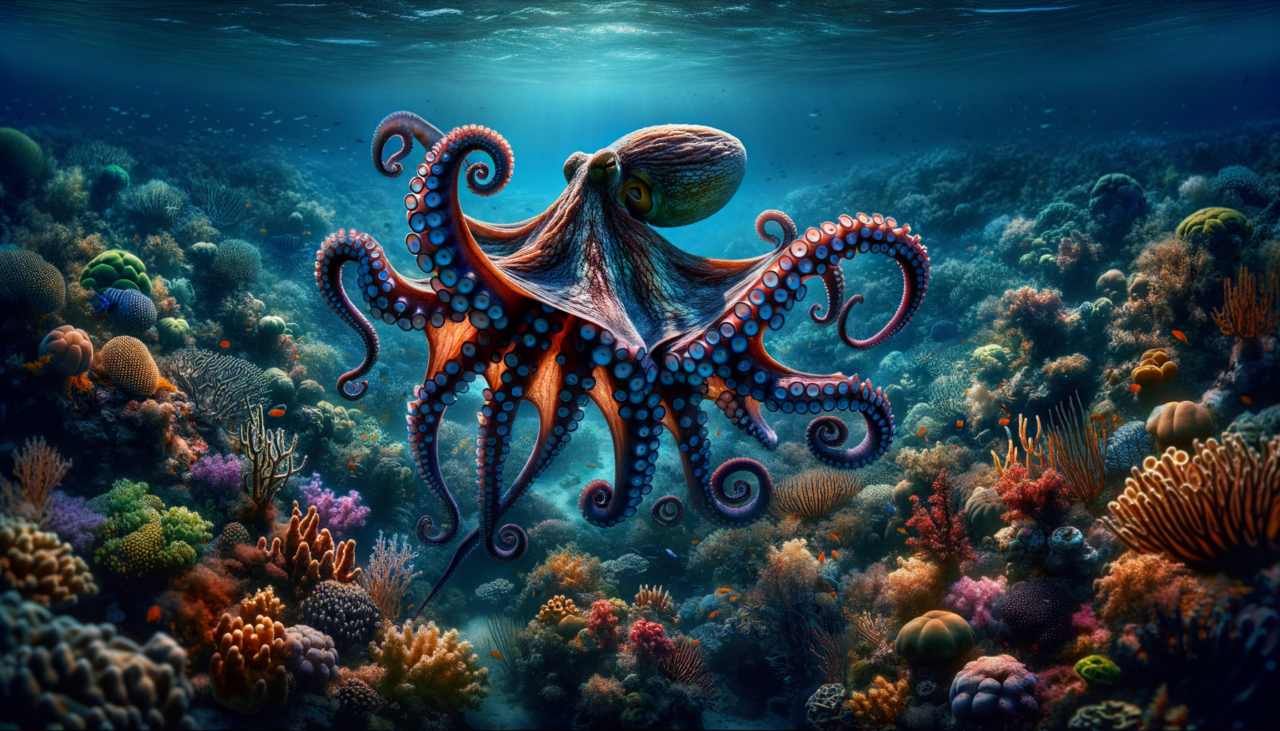In the vast and mysterious depths of the ocean, the octopus dances gracefully, an enigmatic creature known for its intelligence and elusiveness. An interesting fact about the octopus is its remarkable ability to camouflage itself instantaneously, blending seamlessly with its surroundings to evade predators. This mastery of disguise is not just a survival tactic but a reminder of the Korean proverb, “빈 수레가 요란하다,” which means “An empty cart rattles loudly.” The octopus, silent and subtle, teaches us that true strength often lies beneath the surface, quiet and unassuming.
The weight of an octopus can vary greatly depending on its species. On average, the common octopus (Octopus vulgaris) weighs between 6.6 and 22 pounds (3 to 10 kilograms). However, the giant Pacific octopus (Enteroctopus dofleini), one of the largest species, can weigh up to 110 pounds (about 50 kilograms). These variations make the task of determining an octopus’s weight both fascinating and complex.
The story of the octopus is as ancient as the oceans themselves. These cephalopods have been a subject of intrigue and study for centuries, their mysterious nature captivating humans across generations. Weighing an octopus is not just a matter of curiosity; it is pivotal for understanding their role in the marine ecosystem, their health, and their behavior. Just as a wise elder might say, “손바닥으로 하늘을 가릴 수 없다”—”You cannot cover the sky with the palm of your hand”—we learn that understanding the weight of the octopus unveils only a fraction of its mysteries, inviting us to explore the broader tapestry of life beneath the waves.
Delving into the world of the octopus is much like sharing a cup of tea with an esteemed ancestor, each sip revealing layers of wisdom and wonder. As we ponder the weight of these oceanic marvels, we are reminded of their delicate balance with nature, and our own place within it—a lesson as timeless and vast as the sea itself.

Comments (0)
There are no comments here yet, you can be the first!